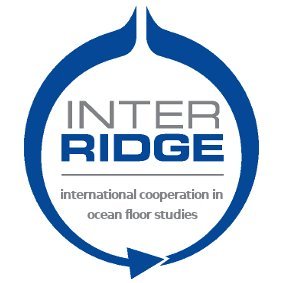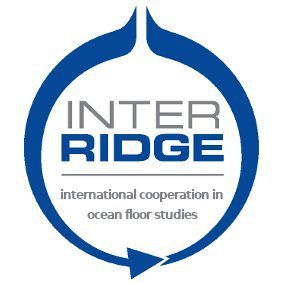InterRidge 2022 Webinar April
Hydrothermal vent fluid composition as a guide to subseafloor magmatic/hydrothermal processes (14:00 GMT, Wednesday April 20th )
Summary
Studying active hydrothermal systems in the deep-sea opens up unique opportunities for furthering our understanding how polymetallic seafloor massive sulfide accumulations form. The possibility of sampling the ore-forming fluids that are emitted through sulfide-sulfate chimneys is particularly powerful. The use of gas-tight samplers in collecting hydrothermal vent fluids facilities measurements of the contents of dissolved gases and metals and allows for accurate reconstructions of in situ pH and redox conditions. Metal transport in seafloor hydrothermal systems is affected by fluid-rock interactions, magma degassing, phase separation, and subseafloor mixing of the upwelling hydrothermal fluids with entrained seawater. The composition of basement hosting deep-sea hydrothermal vent systems, i.e. the type of rock involved in fluid-rock interactions, ranges from ultramafic to felsic. Geotectonic settings of vent systems vary from mid-ocean ridges to backarc spreading centers to island arc and intraplate volcanoes, which show strong contrasts in water depth and influx of magmatic fluids. I’ll present examples from selected arc/backarc hydrothermal vent sites in felsic crust for how vent fluid compositional data can yield detailed insight into km-scale metal transport as well as smaller scale processes of zone refining. I’ll stress the usefulness of data compilations and thermodynamic modelling.
Main points
- Vent fluid compositions are sensitive to a range of subseafloor processes that affect microbial life and the formation of SMS deposits.
- Concentrations of dissolved gases are particularly useful proxies for redox and sulfidation state.
- In arc/backarc setting, magma degassing imposes a primary control on vent fluid compositions.
- Reaction path modeling and T-X sections can be helpful tools in hydrothermal vent studies.
Brief information about Dr. Wolfgang Bach: Main career and academic interest
Wolfgang Bach spent nine years at Woods Hole Oceanographic Institution after completing his PhD in 1996 at the University of Gießen. Since 2005, he has been professor for petrology at the University of Bremen. His research on ocean floor hydrothermal processes combines studies of rocks and fluids from the ocean crust, with experimental work at elevated pressures and temperatures, and thermodynamic modeling. He has been involved in a large number of seagoing cruises, including six (I)ODP drilling expeditions, in addition to many missions aimed at exploring and sampling hydrothermal vents in the deep ocean.

